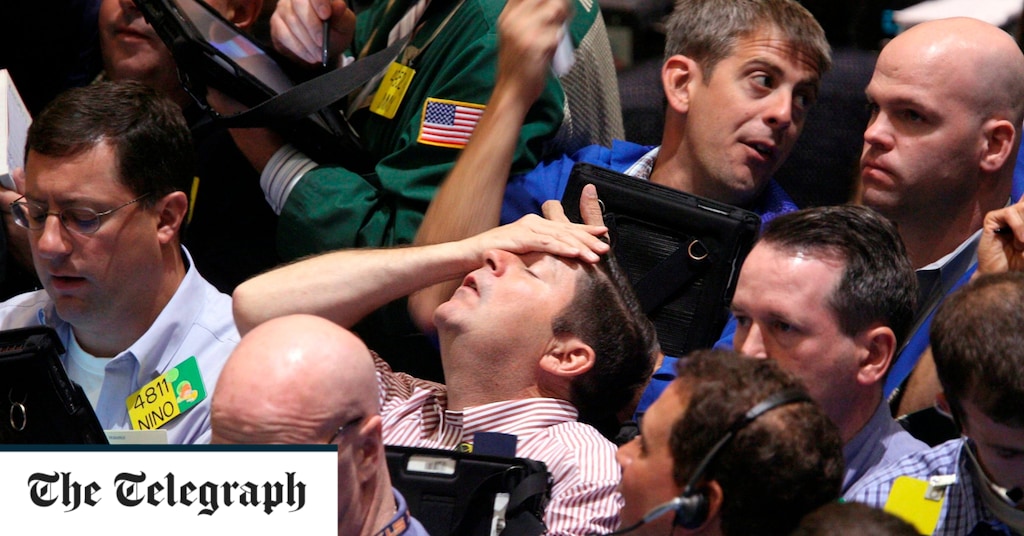Investors have enjoyed a steadily rising stock market for the best part of a decade but will need plans in place if it all goes up in flames.
Market downturns are like horror movies, all can seem fine one minute and then rapidly turn to panic-stricken danger the next.
Cambridge Associates, an American fund firm, has published a report on how investors can protect themselves the next time the market falls. Kevin Rosenbaum, co-author of the report, said: “The best way to navigate an equity market downturn is to enter it with a plan.”
Below are some of the main things investors should look to have in place before the next market collapse.
Own assets that can rise when stocks fall
Mr Rosenbaum said the simplest way to partially protect your investments is to buy assets that rise when stocks fall. This is known as a "negative correlation" which means the two investments tend to move in opposite directions.
This job has historically fallen to safe-haven government bonds, with British stocks and government bonds negatively correlated. However, bonds rose in value as the central bank cut interest rates and tried to boost the economy by buying up government debt (quantitative easing), and now investors are paid very little, leading to many selling up.
Investors instead moved cash to other assets, such as real estate, commodities, and emerging market bonds.
Although these have historically shown a low or negative correlation with stock markets over long periods of time, during a shorter and sharp downturn they also tend to be sold off, losing investors money.
Keep your cool and ignore your instincts to sell
Like all animals exposed to danger, humans are hard-wired with “fight or flight” survival instincts, but taking the latter option with investments can be problematic.
Report co-author Michael Salerno said: “Downturns exacerbate bad behavior, which increases the risk of making mistakes that can permanently lose you money,” the report said.
People tend to be short-termist in tense situations. When markets start to fall, so does an investor’s willingness to lose money – they can panic and try to “stop the bleeding” rather than think rationally.
A steady feed of negative headlines can shorten investors’ ability to think long-term, and can focus their attention of ensuring they do not lose money in the short term. Typically investors either come out of markets at exactly the wrong time or at the very least are prevented from re-entering the market at a good price.
Investors should therefore stick to the plan and stop behavioural tendencies from impacting long-term returns.
Make sure, if you have to, that you are able to sell
Co-author Sean McLaughlin said: “Investors that have put more money into unlisted investments and have reduced their bond holdings, should pay close attention to liquidity [ability to sell] issues."
As proven by the Neil Woodford debacle, buying smaller or unlisted companies that are hard to trade can be a big problem for investors if everybody wants to sell out at the same time.
Yet private equity has played an increasing role in investor portfolios in recent years as businesses stay private for longer than they have tended to in the past.
Most ordinary investors use funds but those that own illiquid assets can suspend trading and lock in investors’ money when markets fall and a lot of investors try to pull their cash out at once.
Funds investing in bricks and mortar commercial property had to do this in 2016 as they could not sell assets as quickly as investors requested their cash.
Mr McLaughlin said: “Investors with significant allocations to hard-to-sell assets should have a plan for what and how to sell in the next downturn.”
Get back into the market as soon as possible
The challenge with identifying stock market lows is the lack of an obvious signal. Investors can often be tricked by “false bottoms” – where the market looks to be stable but then plummets again – making it difficult to identify the end of the downturn.
Yet many investors end up looking back at market downturns with regret after they realise it presented a prime opportunity to buy cheap assets.
Following the market crash in 2008, the FTSE All Share index – a measure of the British market – rose more than 30pc in 2019.
Investors should be prepared to make incremental tweaks their portfolios as markets change. When the market is falling it would be wise have a tilt towards bonds, but after a broad selloff this should slowly be reduced and replaced with stocks.
Making gradual changes will limit the amount that can be lost if investors are proven to be wrong.
























Comments